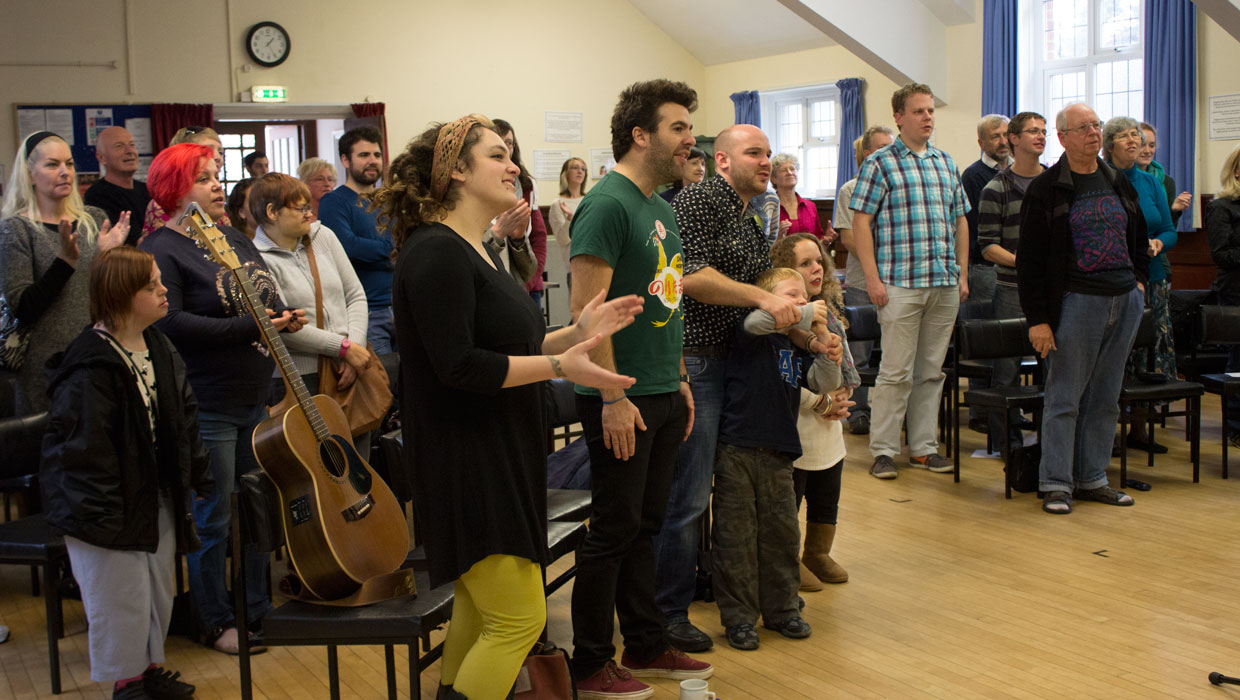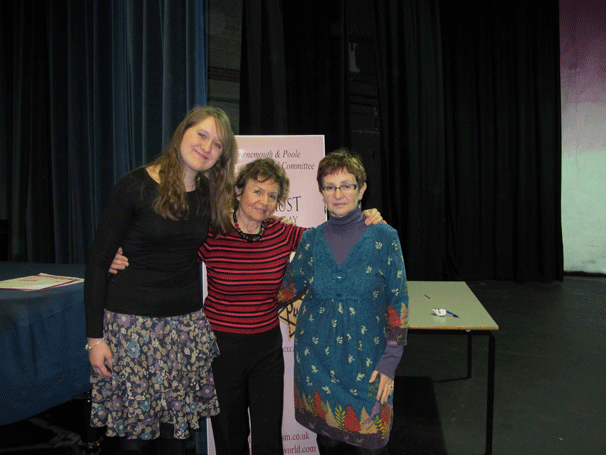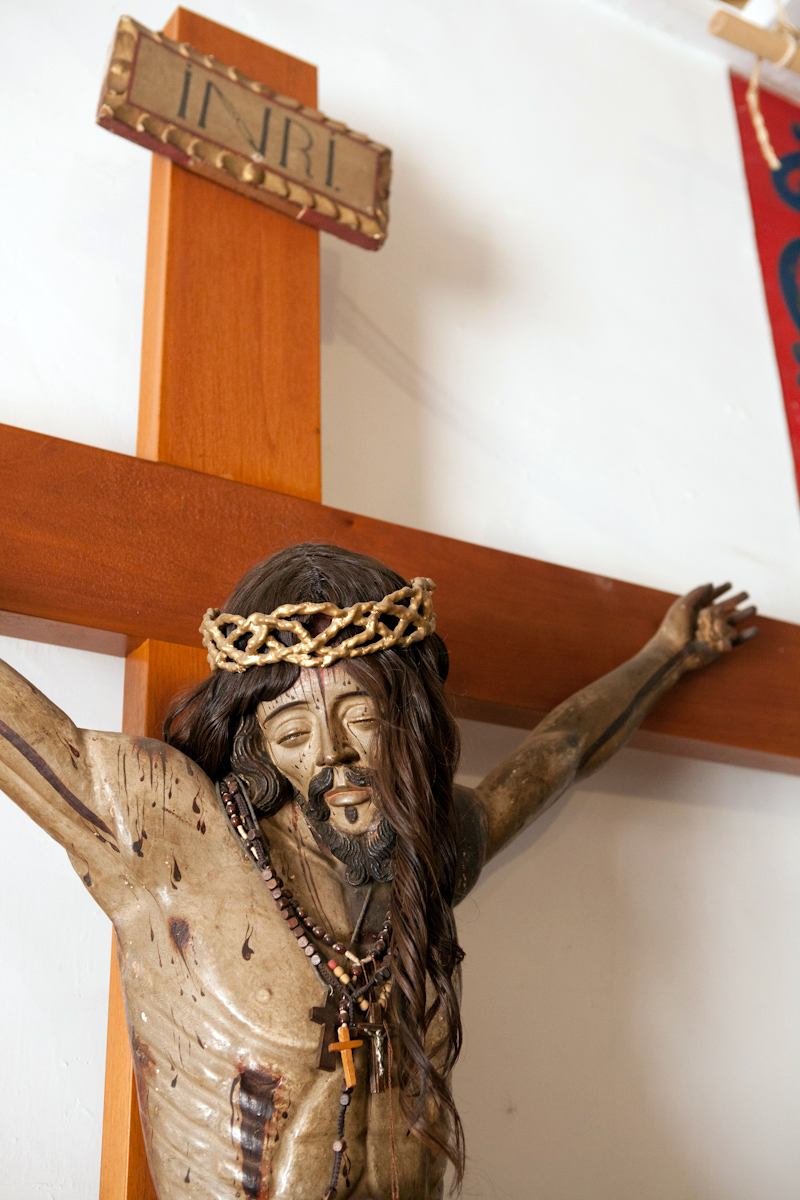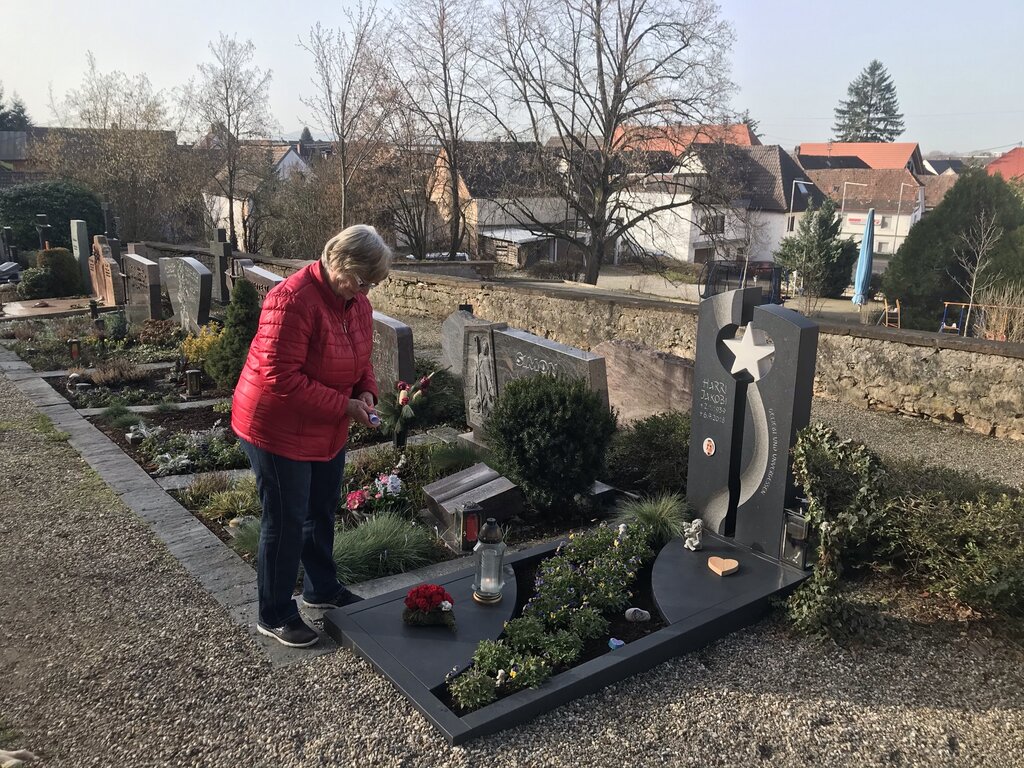It’s a chilly Sunday morning in Winton. Inside the Rooper Memorial Hall, the congregation sits in rows with an aisle running down the middle. At the front, a young man with a microphone cheerily asks, “How’s everyone doing this morning?” The crowd murmurs back incoherently. The week has taken it’s toll. He tells everyone to get on their feet. All of sudden, Kool & The Gang’s ‘Celebration’ blasts out from speakers as the audience starts to loosen up, move their bodies and sing along. This is not your usual Sunday morning gathering.
It’s a fitting start to the morning’s proceedings. After all, the Sunday Assembly calls itself a ‘godless congregation that celebrates life’. Since its genesis in London in January 2013, 70 groups worldwide have started up, mostly in towns and cities in the US and UK. Sunday Assembly Bournemouth officially launched at the end of September along with 34 other new assemblies, meaning that the movement more than doubled its size in one day.
At the second-ever event in Bournemouth, the number of attendees had expanded to over 50, and its organiser Sue Crowder hopes to attract more and more like-minded people. “The idea of community is so valuable, so precious and yet so hard to find,” she explains.
“The idea of community is so valuable, so precious and yet so hard to find”
“Belonging has been lost, somehow, especially in bigger towns such as Bournemouth and Poole. It’s such a mobile population – there are many students, and a lot of coming and going. If we can provide a space that offers some temporary place of belonging for people who have been uprooted, then great. If they live here, even better because then we can actually form a community that can transform our society.”
It’s the community aspect of organised religion that many Sunday Assembly participants crave. Charity worker Ruth Haydock, attending for the first time, grew up going to various different churches before turning away from religion. “It probably is the sense of community I miss. The main reason I came was to meet like-minded, non-religious people,” she says. Sue herself used to be a strict Christian before gradually beginning to question her belief in God and some of the churches’ teachings. “I miss all the good bits, but I don’t miss the religion,” she says.
She first heard about the Sunday Assembly last year through watching an interview with its two founders, comedians Sanderson Jones and Pippa Evans. They themselves describe it as “the best bits of church without religion”. It’s also been dubbed the ‘atheist church’ by the media, a nickname which the movement now tries to distance itself from. The association with atheism is problematic, Sue believes, because the Sunday Assembly tries to be as inclusive as possible meaning that religious and non-religious alike are welcome. “The inclusiveness means we can use the wisdom of religions but not include the dogma,” says Sue. In New York, however, disagreements about whether atheism should be a defining feature caused a split early on, leading to the formation of breakaway group ‘Godless Revival’, who call themselves a ‘monthly atheist variety show’.
In keeping with the rest of the country, religion is on the wane in Bournemouth. Census data shows that the number of non-religious people has almost doubled since 2001. Nearly a third of Bournemouth’s population now say they don’t identify with any religion, a slightly higher figure than England’s average (25%). In comparison, the number of Christians has fallen from 71% in 2001 to 57% in 2011, again mirroring a similar trend across England.
Dorset Humanists, which holds regular meetings in Bournemouth, is the largest atheist/agnostic group in the area. Chairman David Warden says they are supportive of Sunday Assembly, although in general they expect their members to take a more explicitly non-religious stance. Whilst the humanists’ world view is based on reason, a common sense of humanity and a rational and scientific approach to understanding the universe, Sunday Assembly doesn’t follow any particular philosophy other than to ‘live better, help often and wonder more’, as set out in their charter.
Sue is clear that the event is not the place for spreading atheist ideology, just as those expounding religious doctrine would also not be given a platform to speak. “We’re not going to have Richard Dawkins or any of his followers giving a talk here. He spends a lot of time knocking Christianity. I understand because I’ve been angry with the church and Christianity myself. But this isn’t where I want to spend my energy.” For hard-line atheist Graham Corbin, the morning’s events are “a bit too run of the mill.” But he says he’ll keep supporting the movement, because “anything’s better than the church.”
It’s still early days, and the structure is a work in progress. Sunday Assembly HQ offers a suggested format, including the aforementioned pop songs, readings, talks and a moment of reflection, but individual groups can deviate from this as long as they stay within the charter. Sue has already decided to cut down on the songs, an element that might not be to everyone’s tastes, including first-timer Ruth who finds the upbeat singing all-too reminiscent of the Pentecostal church of her youth.
However, the positive ideals of the group could possibly turn the most hardened cynic. “Sunday Assembly want to be a force for good in the world,” explains Sue. In towns and cities across the world, the movement is trying to reclaim a sense of community that has largely been forgotten in the tumult of modern life.
The next Sunday Assembly will be held on Sunday 30th November, 11-12.30pm at the Brunswick Pub, Malmesbury Park Road. For more details go here.








